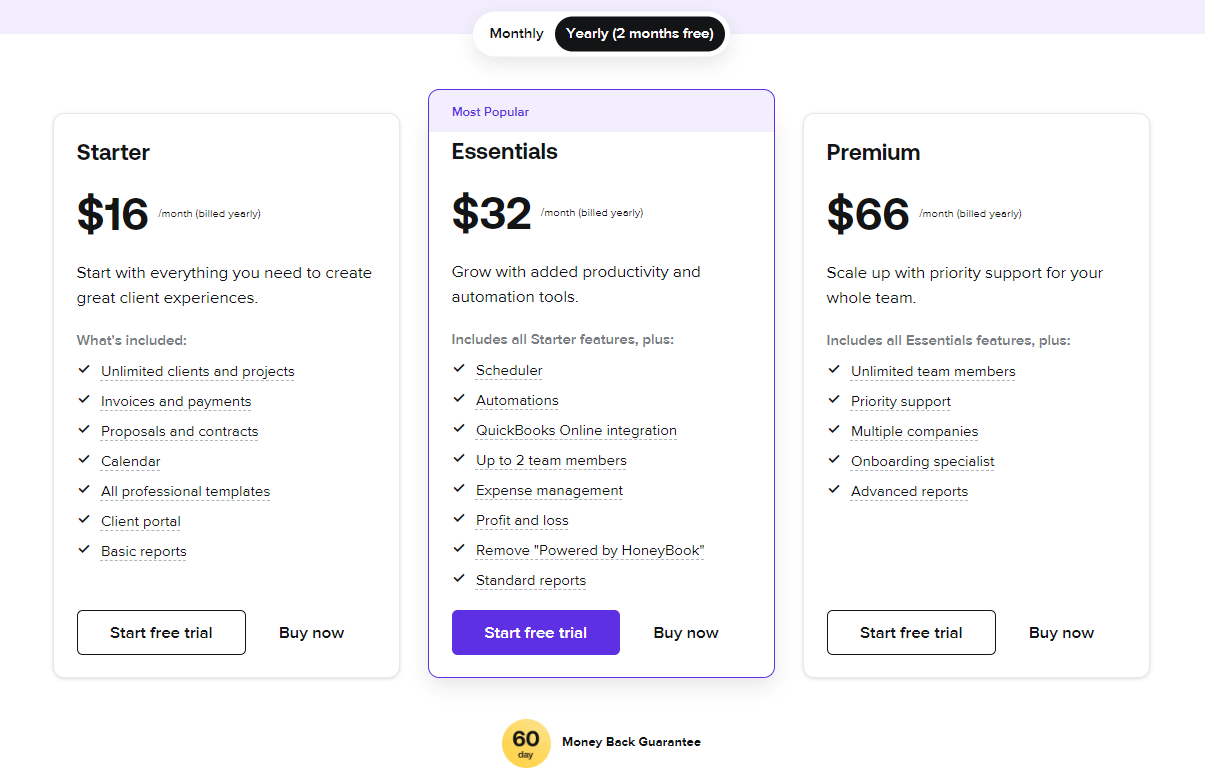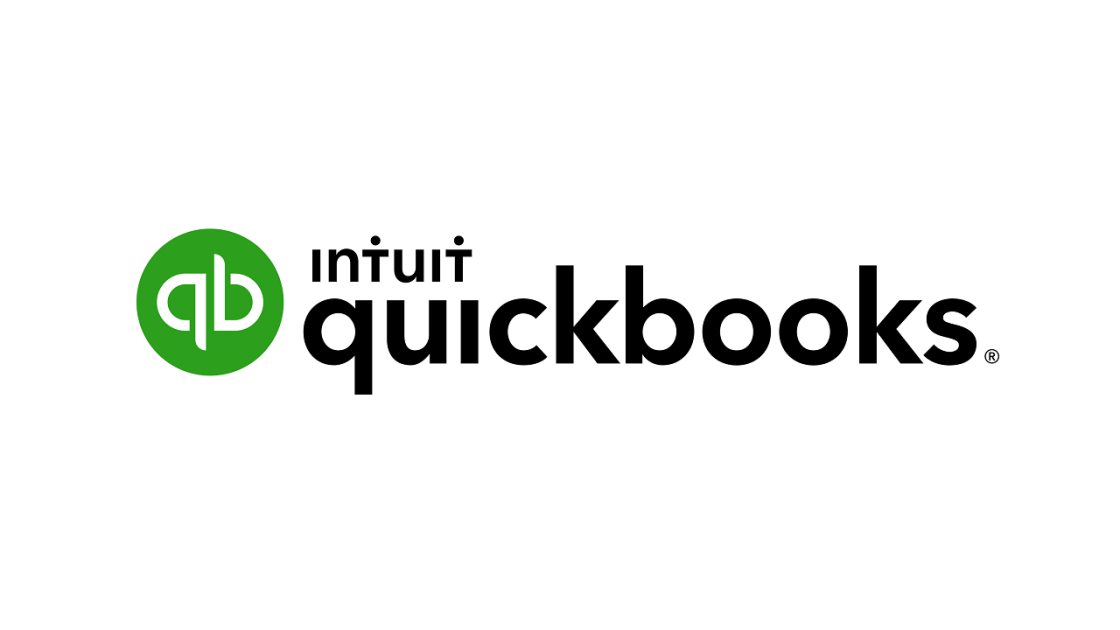Billing and invoicing are some of the most crucial tasks involved in any business. In today’s market, there are multiple applications that help companies to generate invoices and carry out billing operations effectively. The vast number of choices available makes it difficult for companies to choose the right platform. However, Honeybook and Quickbooks are two of the most popular applications that enterprises and individual business owners use across the world to meet their needs.
This article will provide a comparative understanding of Honeybook vs Quickbooks. The article will also mention the key differences between the two platforms. Read along to find out in-depth information about Honeybook vs Quickbooks.
Table of Contents
Introduction to Honeybook

Honeybook is a Software as a Service company that offers one of the most widely used Client Experience and Financial Management platforms. Honeybook is a monthly cum yearly subscription-based platform that has been meticulously designed to meet every business need of small-sized companies related to Project and Client Management. The platform streamlines various business operations such as client booking and raising invoices to help companies effectively manage client and cash flow. With robust billing, contracts, and client communication tools, Honeybooks makes it easy for companies to offer unmatched client experience.
The platform can be used to manage payments, raise invoices, book clients, and do many other related tasks. According to the company, businesses in the United States and Canada have booked over $5 billion while using Honeybook. A significant advantage of using Honeybook is that it can be easily integrated with various third-party platforms like Calendly, Google Calendar, Gmail, Zapier, and many more. Honeybook also proves a smartphone application compatible with Android and iOS that lets users manage their businesses from anywhere in the world.
It is a San Francisco-based software firm founded by Dror Shimoni, Naama Alon, Oz Alon, and Shadiah Sigala in 2013. The company is funded by investors like Tiger Global Management, Durable Capital Partners, Norwest Venture Partners, Citi Ventures, Zeev Ventures, and many others.
Unlock the full potential of your financial data by using Hevo for integration. Within minutes, you can seamlessly connect QuickBooks to your chosen destination, automating your data workflows and gaining real-time insights.
Why Integrate QuickBooks with Hevo?
- Automated Data Sync: Automatically transfer data from QuickBooks to your preferred destinations without manual intervention.
- Real-Time Data Flow: Keep your financial data up-to-date and consistent across all platforms.
- No-Code Platform: With Hevo’s intuitive interface, you can easily set up and manage your data pipeline with no technical skills required.
Join 2000+ Happy Customers
Industry leaders such as Thoughtspot trust Hevo for its reliable data integration solutions.
Key Features of Honeybook
Honeybook offers various features that let users carry out multiple business operations seamlessly. Below mentioned are a few notable Honeybook features.
1) Scheduling
Honeybook allows users to schedule client meetings, appointments and provides the option of sharing them with others to ensure optimized workflow. Users need to set their availability, share the link, and Honeybook automatically schedules the meeting. Honeybook also allows users to send customized confirmation and reminder messages regarding tasks.
2) Automation
With Honeybook, users can automate the process of sending emails, tasks, SMS, and files. Users can set cues, and the platform sends them to desired accounts at the mentioned time. Honeybook automatically sends personalized follow-up messages and inquiry replies.
3) Honeybook All in one
Honeybook provides a personal command section that displays every necessary information like payment status, inquiries, upcoming meetings, files, and many other related data. Users can effortlessly organize crucial information like invoices and contracts in one place, making them more manageable. The feature also helps in providing an enhanced client experience as clients get to review contracts, sign them, and make payments from one place.
Introduction to Quickbooks

Quickbooks is an Accounting Software developed by Intuit for businesses of all scales to help them manage their finances. It is a cloud-based platform that eliminates the need for installing any dedicated infrastructure at workplaces. The software offers multiple tools and features that cater to every accounting and financial need of companies. Quickbooks also provides features like inventory management, customer information, sales reporting, and many more to help companies carry out their sales operations. Enterprises can access the stored data on Quickbooks from anywhere in the world.
Quickbooks allows companies to connect multiple bank accounts and automates the process of importing and categorizing financial transactions. Quickbooks is a highly accessible platform as it provides a smartphone application compatible with both Android and iOS that lets users effectively manage and track their businesses from their mobiles. Quickbooks offers a very user-friendly interface that can be used by individuals with no knowledge of accounting.
Companies operating in various industries, including manufacturing, retail, non-profit, construction, and wholesale, use Quickbooks to meet their accounting needs. The software is also well suited for Indian businesses as it is compliant with GST norms. Apart from accounting and sales features, Quickbooks also provides solutions for effective payroll and field service management.
Quickbooks is a United States-based software company founded by Scott Cook and Tom Proulx in 1983. Over the years, Quickbooks has added numerous utility tools and has become one of the most popular accounting software in the world. Over 4 million businesses across the globe use Quickbooks to meet their accounting needs.
Key Features of Quickbooks
Quickbooks, one of the most popular account software, provides multiple features and tools that help companies carry out tasks related to accounting and finance. Below mentioned are a few notable features of Quickbooks.
1) Better Invoices
Quickbooks allows companies to create professional-looking invoices and send them to clients. Companies can attach links for bank transfer and payment gateways in invoices to speed up the payment receiving process. It also helps clients as they find the payment links directly in invoices. Quickbooks also provides support for foreign currency transactions for sales.
2) Better Expense Management
Quickbooks makes expense management an easy task for businesses. The platform displays all the critical expense data in one unified dashboard that makes it easy to interpret. Users can click pictures of receipts using Quickbooks’ smartphone application, and the platform automatically matches them with existing transactions.
3) Better Data Imports
With Quickbooks, companies can easily import existing data from various third-party sources, which makes a transition to Quickbooks an effortless job. The platform offers data import support for Gmail, Google, Outlook, Microsoft Excel, and many other popular applications. This feature gives companies a huge advantage as they need not re-enter existing data manually.
Honeybook vs Quickbooks: Key Differences
Honeybook and Quickbooks are both widely used platforms that provide solutions and tools catering to necessary business needs for Accounting and Client Management. However, the platforms, when compared with each other, have some key differences. Below are a few notable differences between Honeybook and Quickbooks.
- Honeybook vs Quickbooks: Purpose
- Honeybook vs Quickbooks: Versatility
- Honeybook vs Quickbooks: Reports
- Honeybook vs Quickbooks: Pricing
1) Honeybook vs Quickbooks: Purpose
Quickbooks is a full-fledged Accounting and Financial Software that is used to manage company finances and sales accounts. However, Honeybook is more of a Customer Relationship Management Platform that focuses on providing a better experience to clients. The primary motive of Honeybook is not Bookkeeping but to provide enhanced customer experience, whereas Quickbooks is dedicated bookkeeping software. Secondly, Quickbooks can be used by companies of all scales, but Honeybook specifically targets individual business owners.
2) Honeybook vs Quickbooks: Versatility
Since Honeybook is a Client and Business Management platform, it can be used to carry out many more tasks when compared to Quickbooks. Users can choose Honeybook to manage projects, connect with clients, receive payments, schedule appointments, manage calendars, and lots more without having the need for any third-party integrations. Honeybook brings together the features of client management and accounting, making it a more versatile platform.
Quickbooks is a robust software that caters to every accounting needs, but it requires various integrations to increase its capabilities from bookkeeping to project management. However, if bookkeeping is concerned, Quickbooks offers many features that Honeybook does not provide, like accounts receivable, budgeting, cash flow management, bank reconciliation, automatic billing, and many more.
3) Honeybook vs Quickbooks: Reports
The reports generated by Honeybook are more business performance-centric that provide information like conversion rate, the total number of invoices sent, the number of accepted invoices, and many more. Quickbooks, on the other hand, generates reports that emphasize financial figures. Reports on Quickbooks display critical metrics such as total expenses, total income, payable tax, tax deductions, and many more.
4) Honeybook vs Quickbooks: Pricing
Honeybook and Quickbooks are very competitively priced when compared to other similar software. Honeybook currently offers three subscription plans that start from $9 per month and goes up to $390 per year. The top-of-the-line subscription offers various added features like unlimited transactions, unlimited concierge support, and unlimited team members. All the available plans include features like automation, account migration, scheduling, client portal software, lead, and project tracking, and many more. Honeybook also provides a seven-day free trial to help users understand the functionalities of the platform before making any commitments. Honeybook offers a 30-day money-back refund policy.

Quickbooks also offers three monthly subscription plans, namely EasyStart, Essential, and Plus, that start from $20 per month and go up to $60 per month. All the available plans allow companies to connect multiple bank accounts and automatically categorize transactions. Companies can also use Quickbooks’ mobile application for better accessibility while opting for any of the Quickbooks subscriptions. The top-end subscriptions offer added features like project profitability tracking, inventory tracking, time tracking, multi-currency, and multi-user support. Companies can also opt for Quickbooks Add-ons at additional costs to further improve the platform’s capabilities. Quickbooks offers a 30-day free trial to help its customers make better-informed purchasing decisions.

Conclusion
Quickbooks and Honeybook are two powerful platforms that are used for varied business needs. Quickbooks is one of the best accounting software available in the market, whereas Honeybooks helps users to provide a better client experience. The aforementioned differences will help companies choose the appropriate product depending upon their requirements.
Hevo Data, a No-code Data Pipeline provides you with a consistent and reliable solution to manage data transfer between a variety of sources such as Quickbooks and a wide variety of Desired Destinations with a few clicks.
Hevo Data with its strong integration with 150+ Data Sources (including 60+ Free Sources such as Quickbooks) allows you to not only export data from your desired data sources & load it to the destination of your choice but also transform & enrich your data to make it analysis-ready. Hevo also allows integrating data from non-native sources using Hevo’s in-built Webhooks Connector. You can then focus on your key business needs and perform insightful analysis using BI tools.
FAQ
Difference between QuickBooks and HoneyBook
QuickBooks is focused on accounting and bookkeeping, while HoneyBook is designed for project and client management with basic invoicing features.
Is HoneyBook good for bookkeeping?
HoneyBook offers basic bookkeeping features but lacks the advanced financial management tools found in dedicated accounting software like QuickBooks.
Is HoneyBook compatible with QuickBooks?
Yes, HoneyBook can integrate with QuickBooks Online, allowing for seamless syncing of payments and invoices between the two platforms.










